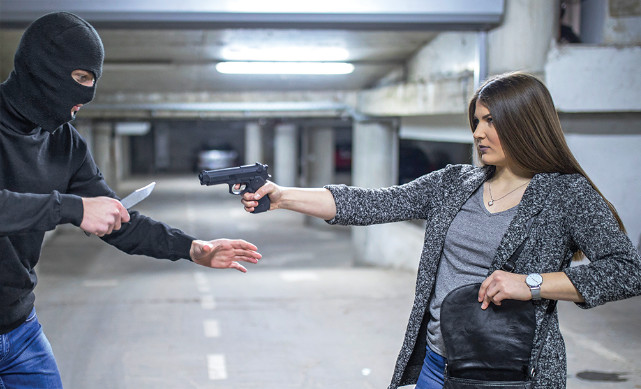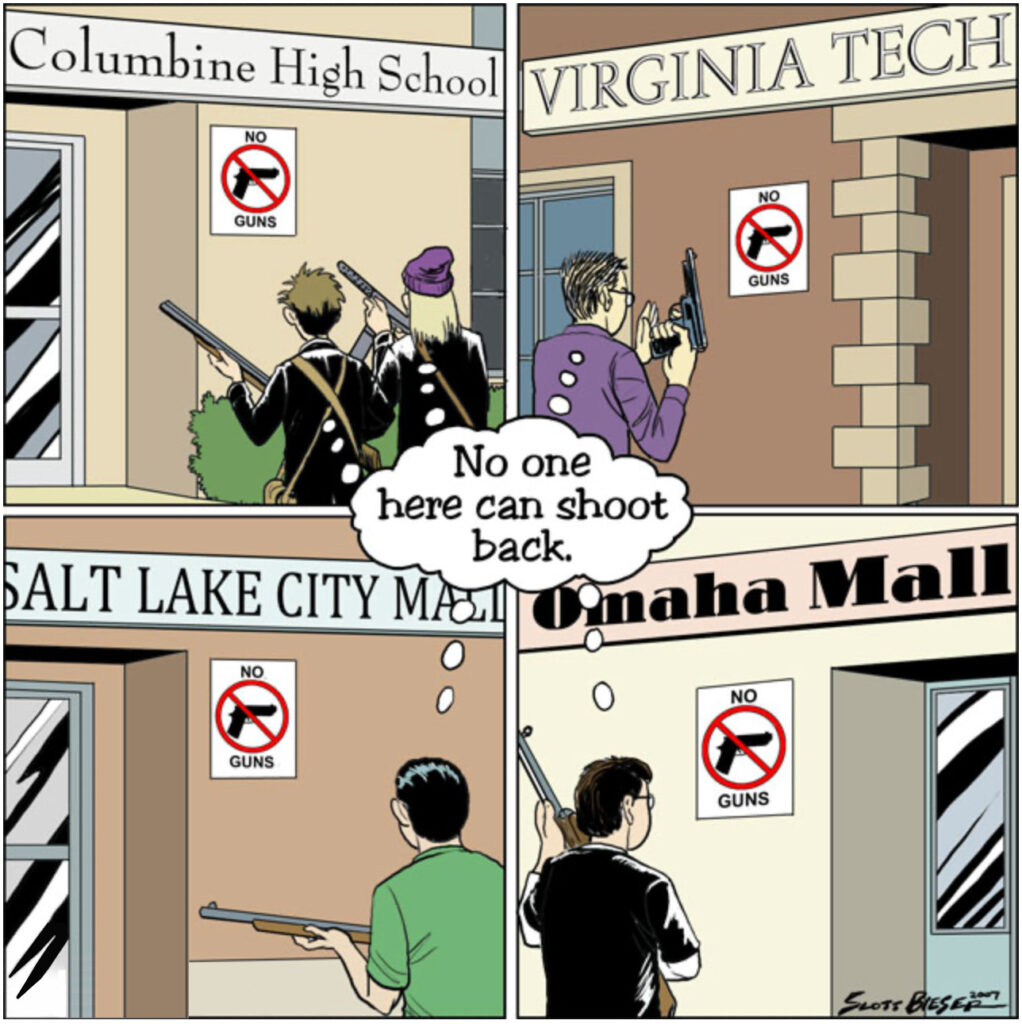By Marvin Marroquin • Updated: 03/02/2023 • 11 min read
Welcome to the Second Amendment, the most misunderstood and hotly debated amendment in the Bill of Rights. Some people believe that it’s outdated and no longer relevant in today’s society, while others argue that it’s more important now than ever before.
As an advocate for gun rights and the Second Amendment, let me assure you that the right to keep and bear arms is incredibly vital today for providing self defense against criminals and, if necessary, tyrannical governments. Not only that, it’s one of the most basic rights people should have, regardless how any individual, group, or government feels about it.
History of the Second Amendment
The Second Amendment was added to the Bill of Rights in 1791. It was influenced by the experience of the colonists in resisting the British during the Revolutionary War, who recognized that the right to bear arms was essential to their ability to defend themselves against tyranny. At its core, the Second Amendment was included in the Constitution to ensure that the people would always have the means to defend their freedom against any future threats, whether from foreign enemies or domestic tyranny.
Back then, firearms were commonly used for hunting, personal protection, and even as a means of survival in some cases. Many Americans at the time believed that owning a firearm was a fundamental right, and that it should be protected by law. The Second Amendment was seen as a necessary safeguard against the potential infringement of this right by the government.

While some argue that the Second Amendment is an outdated relic of the past. They say that times have changed, and that we no longer need to protect our right to bear arms. The right to bear arms is not only a fundamental constitutional right, but it’s also a symbol of individual liberty and a reminder that the government must always be accountable to the people it serves. As gun owners, we have a duty to protect our rights and to ensure that the government never oversteps its bounds.
The Right to Self-Defense
When it comes to the Second Amendment, one of the most important aspects to consider is the right to self-defense. Every law-abiding citizen, or human being for that matter, has the right to defend themselves, their loved ones, and community from harm. This means that we must be able to own and carry firearms for personal protection, just as we have the right to own and carry any other tool that we might need in order to protect ourselves.
Gun control activists argue that we don’t need guns for self-defense because the police are there to protect us. But the truth is that the police can’t be everywhere all the time. When seconds count, the police are minutes away. Any honest police officer would agree. In those critical moments, it’s up to us to defend ourselves and our families. And that’s why the Second Amendment is so important. It ensures that we have the means to protect ourselves when the need arises.

Of course, the right to self-defense doesn’t just apply to our homes. It also applies when we’re out in public. Criminals don’t follow those silly things we call laws, such as gun-free zones. Hell, they don’t even respect basic moral codes, such as perhaps … maybe … murder is kind of wrong. By carrying a firearm, law-abiding citizens can protect themselves and others from harm, even in public places.
Now, I’m not saying that everyone should be mandated to carry a gun. It’s a personal choice, and it’s not for everyone. But for those of us who choose to exercise our right to bear arms, and take on that personal responsibility, we should be able to do so without undue interference from the government. After all, the Second Amendment is the only one that specifically states “shall not infringe,” and we should never forget that.
And there are countless examples of law-abiding citizens using firearms to protect themselves and their families from harm. In the past 90 days alone, there have been 127 defensive gun uses recorded throughout the U.S. For instance:
- On January 13th 2023, a woman shot her ex-boyfriend in self-defense in Miami Gardens after being attacked by him. (Source: NBC Miami)
- On January 17th 2023, police arrested a man after they say he was found attempting to rob someone before being stopped at gunpoint by the victim. (Source: PA Homepage)
- On January 29th 2023, a homeowner defended himself against multiple attackers, shooting and killing one of them. (Source: AZ Central)
These are just a few examples of how firearms can be used for self-defense. In each of these cases, law-abiding citizens were able to protect themselves from harm, thanks to their Second Amendment rights. And these are not isolated incidents – almost every major study on defensive gun use has found that Americans use their firearms defensively between 500,000 and 3 million times each year. There’s good reason to believe that most defensive gun uses are never reported to law enforcement, much less picked up by local or national media outlets.
Protection Against Tyranny
Now here comes the most controversial part. The Second Amendment isn’t just about protecting yourself and your family – it’s also a crucial safeguard against tyranny. [Insert exploding politician heads here] They’ll try to make you question the very thought of it. I’m sure some of these statements will sound familiar: Do you really think the government would do that? No one is coming for your guns. You can’t take on the American military with puny handguns and rifles.
Our Founding Fathers knew that a government with unchecked power could easily become oppressive and infringe upon the rights of its citizens. We see this happening with every passing administration, it’s becoming increasingly more authoritarian. And that’s where the Second Amendment comes in – it ensures that the people have the ability to defend themselves against a tyrannical government.
Let me give you some examples from history. Look at Nazi Germany, for instance. Hitler and his regime systematically disarmed the Jewish population, making it nearly impossible for them to resist the atrocities being committed against them. If those Jews had been armed, who knows how differently things might have played out? Maybe they could have held off the Nazis long enough for other nations to come to their aid. But they didn’t have that chance, because their right to bear arms had been taken away.

And it’s not just a problem from the past. Look at Venezuela, where the government has become increasingly tyrannical in recent years. The citizens there had their guns taken away, leaving them defenseless against government oppression. They’re at the mercy of a corrupt regime that cares more about maintaining its grip on power than protecting the rights of its people. That’s exactly the kind of situation our Founding Fathers were trying to prevent with the Second Amendment.
But it’s not just about preventing full-blown tyranny – the Second Amendment also serves as a check on government overreach. When politicians know that the people have the means to defend themselves, they’re less likely to try to push through oppressive laws and regulations. It’s a powerful deterrent against government overreach, and it’s one that we can’t afford to give up.
Gun Ownership as a Constitutional Right
The Founding Fathers understood that an armed citizenry was essential to protect the new nation from external and internal threats. As a result, they recognized that the right to bear arms was necessary to preserve liberty and the rule of law. It’s not about hunting or sport shooting; it’s about protecting ourselves, our families, and our communities from harm.
As Americans, it’s our duty to protect our constitutional rights. And that means standing up for the Second Amendment even when it’s unpopular or under attack. We must never forget that the Constitution is the supreme law of the land, and it guarantees our basic freedoms. The right to bear arms is no different, and it must be preserved for future generations.
The government has a responsibility to respect and protect the constitutional rights of its citizens. It’s not up to the government to decide which rights are essential or how we exercise those rights. Just because someone doesn’t choose to exercise their right doesn’t mean it’s any less important. Our constitutional rights are interconnected, and when one is eroded, it sets a dangerous precedent for the others. That’s why it’s essential to protect all our constitutional rights, even those we may not exercise ourselves.
We live in a country where our freedoms are not handed to us but earned through struggle and sacrifice. The right to bear arms was no exception. We must remain vigilant in protecting it, even when faced with opposition. Because at the end of the day, it’s not just about guns; it’s about protecting our way of life and the principles upon which our great country was founded.
Public Safety and Gun Control
Some people seem to think that if we just ban all guns, we’ll magically be safer. But that’s just not the case. That utopia they keep salivating over doesn’t exist, anywhere. Let’s break down some of the common arguments and myths.
First, the argument that more guns lead to more violence is just plain wrong. According to Pew Research Center, gun homicides and violent gun crimes have been cut in half over the last several decades. In the same time, we know that the gun supply and gun ownership rates has exponentially increased. Evidently, more guns doesn’t equal more gun violence. It’s the criminals who are the problem, not the guns themselves. We need to focus on addressing the root causes of violence, not taking away the rights of law-abiding citizens.
Second, the idea that “reasonable” regulations are somehow not a violation of the Second Amendment is laughable. It’s true, the Second Amendment doesn’t give anyone the right to own any weapon they want without any restrictions or regulations. But those regulations must be weighed against whether a law-abiding citizen has a burden to comply. Most of the proposed regulations gun control activists want to pass pose a massive and unjust burden to good citizens who just want to protect themselves. Meanwhile, the people waking up with murder on their mind will continue to simply ignore them. I go more in depth in another post titled, Should States Limit The Right To Bear Arms?

Third, the idea that gun-free zones are the answer to public safety concerns and stopping mass shooters. Sorry, but that’s just not how it works. Gun-free zones are essentially “soft targets” for criminals who know that law-abiding citizens won’t be armed. These cowards are just looking for defenseless targets so they can avoid getting into a shootout. Instead, we should be encouraging responsible gun owners to carry their weapons in public places, where they can be a deterrent to crime and a first line of defense in case of an emergency.
Finally, the myth that we’re safer without guns. The fact is, there are millions of responsible gun owners out there who use their weapons for self-defense, hunting, and sport shooting. Taking away their rights won’t make anyone safer. Instead, we need to focus on enforcing existing laws, providing education and training to responsible gun owners, and working together to address the root causes of violence in our communities.
Public safety and gun control are complex issues, but one thing is clear: responsible gun ownership and the Second Amendment are not the problem.
After looking into the history, purpose, and practical applications of the Second Amendment, it’s clear that the right to bear arms is just as relevant today as it was when it was first enshrined in the Constitution. It’s more than just a symbolic nod to our country’s history; it’s a safeguard against tyranny, a means of self-defense, and a constitutional right that we should all hold dear.
As responsible gun owners, we must continue to uphold our Second Amendment rights and resist any attempts to erode or diminish those rights. So I encourage you to stay informed, stay engaged, and stand up for the Second Amendment. Our constitutional rights are worth fighting for.
